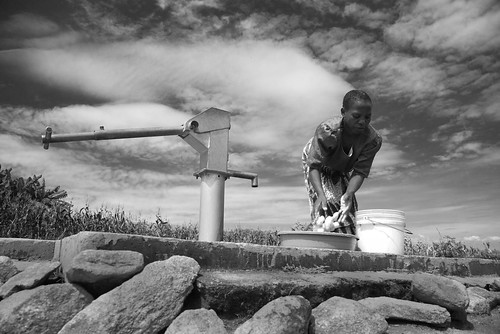A farmer washing newly-harvested potatoes in Malawi. New studies in Africa and Asia offer insights into the reliablity of climate projections for agriculture (photo credit: ILRI/Stevie Mann).
Findings from a series of studies that assessed the reliability of climate models in predicting the impact of climate change on agriculture were released today.
The reports, which are based on studies that tested General Circulation Models in West Africa, East Africa and the Indo-Gangetic plains were produced by the Climate Change, Agriculture and Food Security (CCAFS) research program of the Consultative Group on International Agricultural Research (CGIAR) and Oxford University. The studies reviewed impacts of different climate change scenarios on crop farming in these regions.
The reports show that though individual models have a number of severe weaknesses in predicting agricultural impacts of climate change, they can be used together to produce useful climate change projections. The reports give details on the specific strengths and weaknesses of each of the models used and how they can be used together to predict possible shifts in farming practices.
‘Ensemble model predictions can overcome many of the individual model weaknesses to help decision makers plan future agricultural activities,’ said Philip Thornton, a scientist with the International Livestock Research Institute (ILRI), who coordinated the research for the CGIAR Climate Change program. ‘This information can guide investments in risk management, adaptation and mitigation research, as well as infrastructural development. These actions are crucial if agriculture is to adapt to a changing climate.’
Read full story on the CCAFS news blog: http://ccafs.cgiar.org/blog

